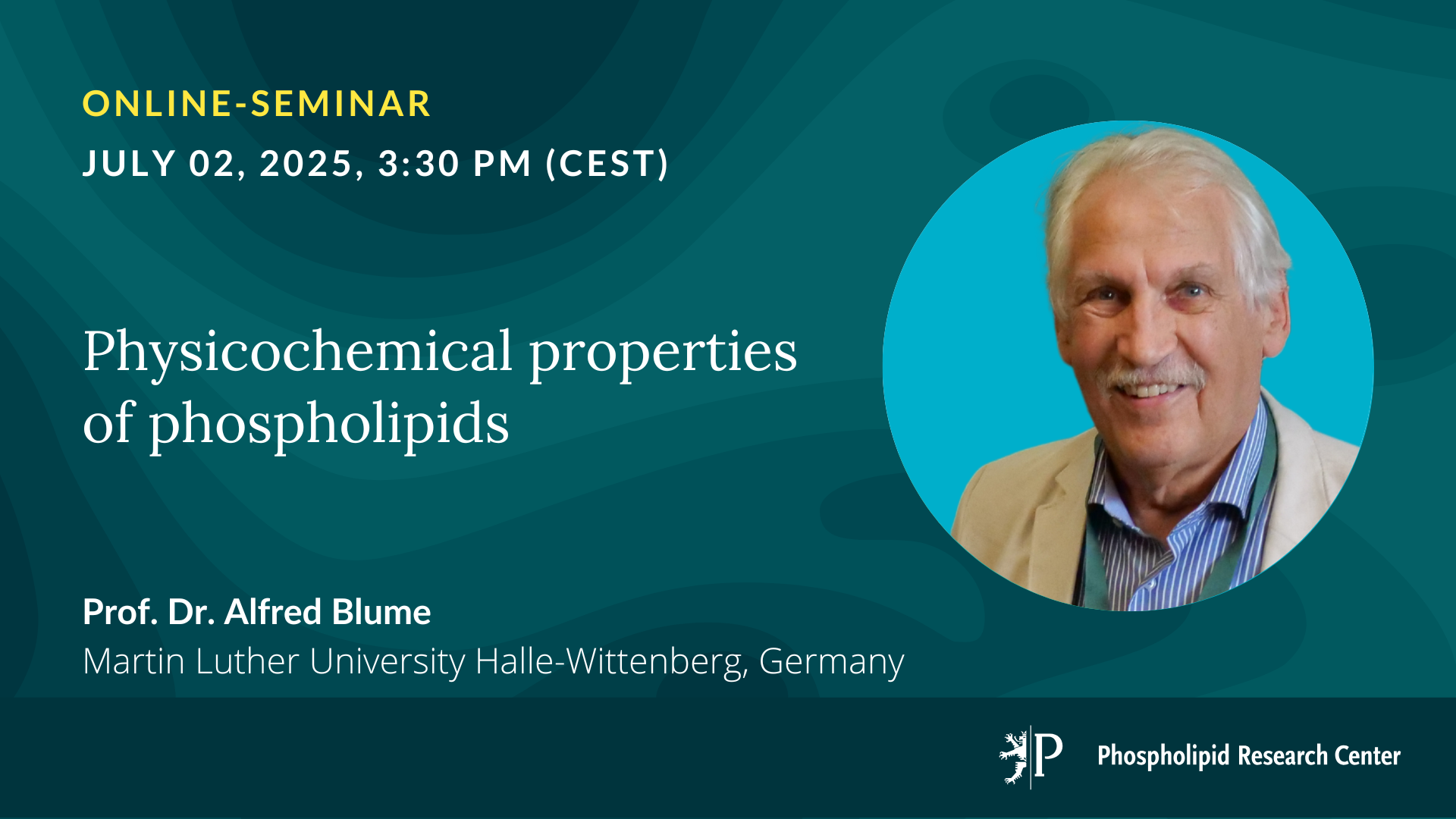Webinar July 2025 – Prof. Blume
On Wednesday, July 02, 2025, an online seminar on "Physicochemical properties of phospholipids" was held at 3.30 p.m. (CEST).

The speaker was Prof. Dr. Alfred Blume from Martin Luther University Halle-Wittenberg, Germany. Prof. Blume is also the President of our Phospholipid Research Center.
If you are interested in the slides of the presentation, please get in touch with us!
Abstract
Phospholipids belong to the class of amphiphilic molecules and occur in nature in many membranes of cells. The chemical structure of a phospholipid molecule consists of two hydrophobic fatty acids and a hydrophilic headgroup with a glycerol moiety connecting the fatty acyl chains with a phosphate group. The phosphate group occurs mainly as a diester, esterified on one side with the glycerol moiety and on the other side with other short alcohols such as choline, ethanolamine, serine, or glycerol. The fatty acids are of various length and degree of saturation. Phospholipids with two acyl chains are practically insoluble in water but form various lyotropic phases due to their amphiphilic character.
In this webinar, I will review the properties of these lyotropic phases and describe the basic methods for their characterization, such as differential scanning calorimetry (DSC), isothermal titration calorimetry (ITC), x-ray scattering (XRD), FT-IR-spectroscopy, fluorescence spectroscopy, and nuclear magnetic resonance (NMR) spectroscopy.
The phase behavior changes with temperature, concentration, and pH of the used buffer systems. In addition, the phase properties depend strongly on the type of headgroup of the phospholipids and on the chemical structure of the fatty acyl chains. As in many applications mixtures of phospholipids are used, one needs to know the mixing behavior of phospholipids with different chemical structure and also their interactions with other hydrophobic or hydrophilic molecules.
For pharmaceutical applications, where various drug-delivery systems based on liposomes, lipid nanoparticles (LNPs), or emulsions are used, the knowledge of these physicochemical properties of the lyotropic phases formed by phospholipids is very important and necessary to be able to vary the behavior und properties of the applied drug delivery system.
